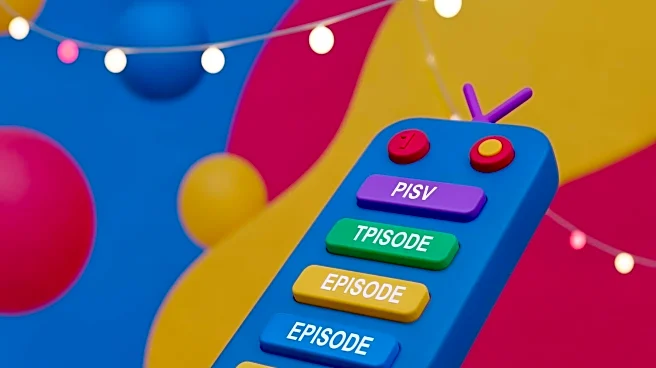What's Happening?
South Park, the long-running animated series created by Trey Parker and Matt Stone, has concluded its 27th season with only five episodes, contrary to the expectations of a ten-episode season. This decision
aligns with the creators' original plan, as reported by The Hollywood Reporter. The season experienced an irregular release schedule, initially following a weekly format before switching to a biweekly one. The finale aired three weeks after the fourth episode. Season 28 commenced shortly after, also consisting of five episodes, continuing the biweekly release pattern. Despite the unexpected format, the show maintained high ratings and sparked significant discussion among fans.
Why It's Important?
The decision to limit the number of episodes in South Park's recent seasons reflects a strategic shift in the show's production approach. This move could impact the series' long-term viewership and fan engagement, as audiences adjust to the shorter seasons and altered release schedules. The change may also be influenced by Parker and Stone's $1.5 billion contract with Paramount, which involves producing 50 episodes over five years. This development highlights the evolving landscape of television production, where creators balance creative control with contractual obligations. Fans and industry observers are closely watching how these changes affect the show's narrative continuity and cultural relevance.
What's Next?
As South Park continues with its 28th season, fans are eager to see how the show's storylines develop within the constraints of the shorter seasons. The creators' decision to maintain a biweekly release schedule allows for more production time per episode, potentially enhancing the quality and topicality of the content. Viewers and critics alike will be monitoring the show's ability to sustain its cultural impact and comedic edge. Additionally, the industry may observe whether this model influences other long-running series to adopt similar strategies in response to changing viewer habits and production demands.
Beyond the Headlines
The shift in South Park's episode count and release schedule may signal broader trends in the entertainment industry, where traditional season formats are increasingly challenged by streaming platforms and changing audience expectations. This development raises questions about the future of serialized storytelling and the balance between creative freedom and commercial pressures. As the industry adapts to these dynamics, South Park's approach could serve as a case study for other creators navigating similar challenges.









